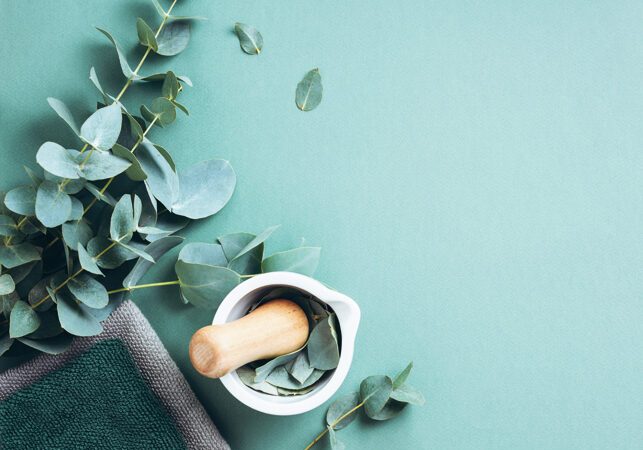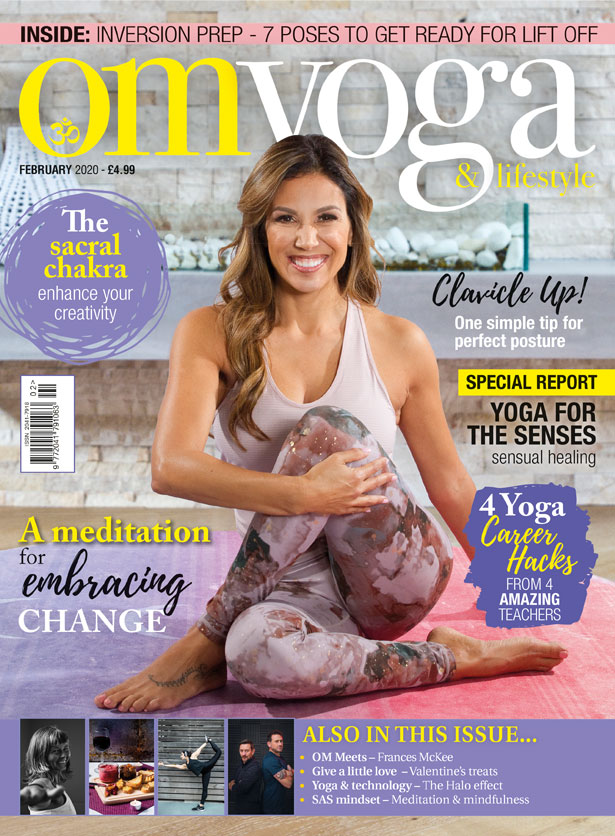
Herbal hugs
How herbal medicine can enhance your time on the yoga mat. By Lucie Bradley
When smell is detected the olfactory neurones generate an impulse that’s passed to the brain via the olfactory nerve. Information is processed by the olfactory bulb in the brain. Additional information is then passed to what’s collectively known as the limbic system. This plays a major role in mood, memory, behaviour and emotion. It is regarded as an ancient part of the brain, unchanged since primitive times. The limbic system was present in the brains of the very first mammals, helping us understand why smell plays such an important part in survival. Memory is significantly linked with smell, more than any other sense. We’ve all had that experience when we’ve smelt something, and it triggered a deep, forgotten childhood memory. It’s because of the connection between the sense of smell and its links to the limbic system.
Sensory experience
Using herbal medicine is a sensory experience. In fact, becoming a herbalist incorporated smelling, tasting, touching and feeling (via my body) what hundreds of different plants were like. The knowledge became embodied. I learnt through my senses. This style of teaching, learning, practicing and prescribing herbal medicines honours the fact that our ancestral brain, the limbic system, retains and stores information going back to the time humans were co-evolving with plants. Within our senses, information about plants and healing is retained, and thus can be released. We all store information about medicinal plants in our senses, notably smell. All medicinal plants have an aroma when prepared as an infusion, and even as a tincture (liquid alcohol medicine). Engaging in the smell of plants enhances their healing capacity.
The rose
Take for example smelling a rose. Our eyes see the beauty of the rose. Our nervous system begins responding. We spontaneously want connection and reach out to feel its velvety petals, then lean down, pulling our noses into the bloom. Our eyes close at the same time as we draw our breath deeply inwards, seeking to soak in all that the rose offers. Our chest expands, the brain receives the message through the olfactory nerve and the limbic system is flooded with information. As we stand upright, with breath full, we notice a change in how our body feels. The breath moves outwards, tension is released.
A warm smile moves across our face, the brain thinks ‘happy’ thoughts, our heart opens; we feel a great sense of warmth and security. A literal herbal hug. This is the healing power of herbs through allthe senses.
Healing herbs
Incorporating medicinal plants and herbs into our daily life magnifies our capacity to heal present issues and past traumas. Next time you practice yoga or meditation, stop a moment. Close your eyes, feel into your body and notice every smell coming into your nostrils. Pay attention. Maybe next time you can consider just how much medicinal plants may improve your practice, and your capacity to heal.
Lucie Bradley is a professionally trained, registered medical herbalist and clinical practitioner based in Glasgow (luciebradley.co.uk)


